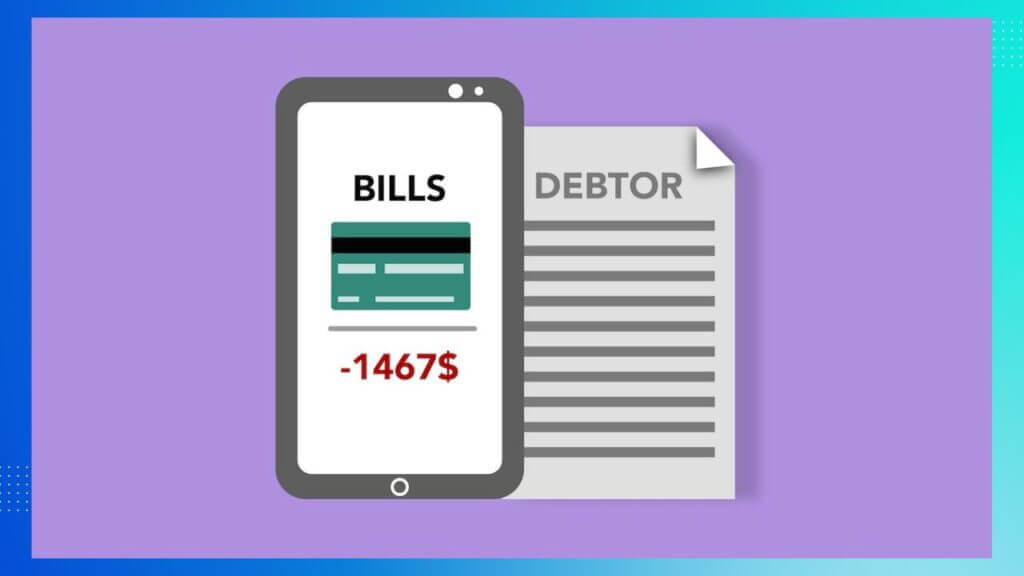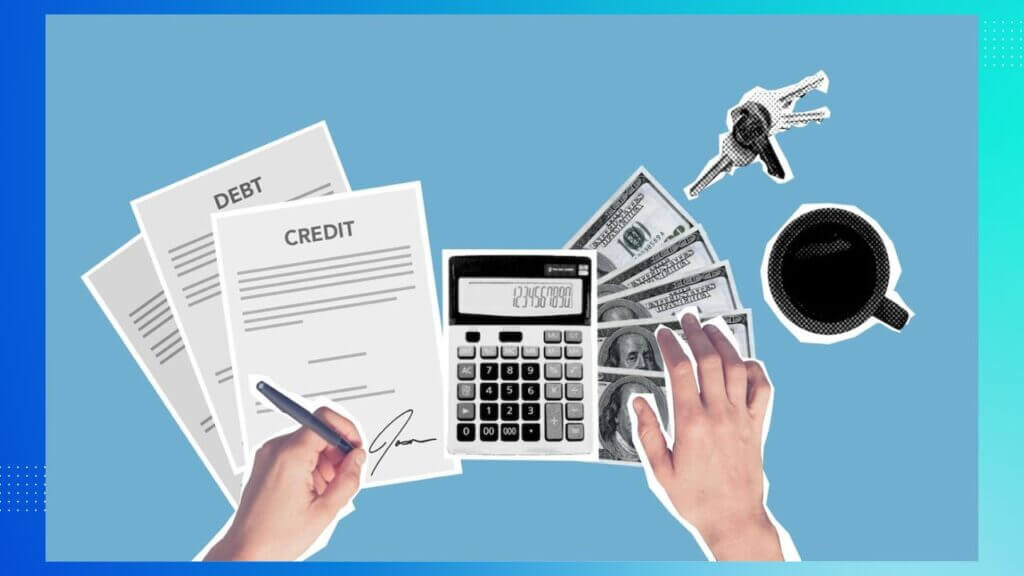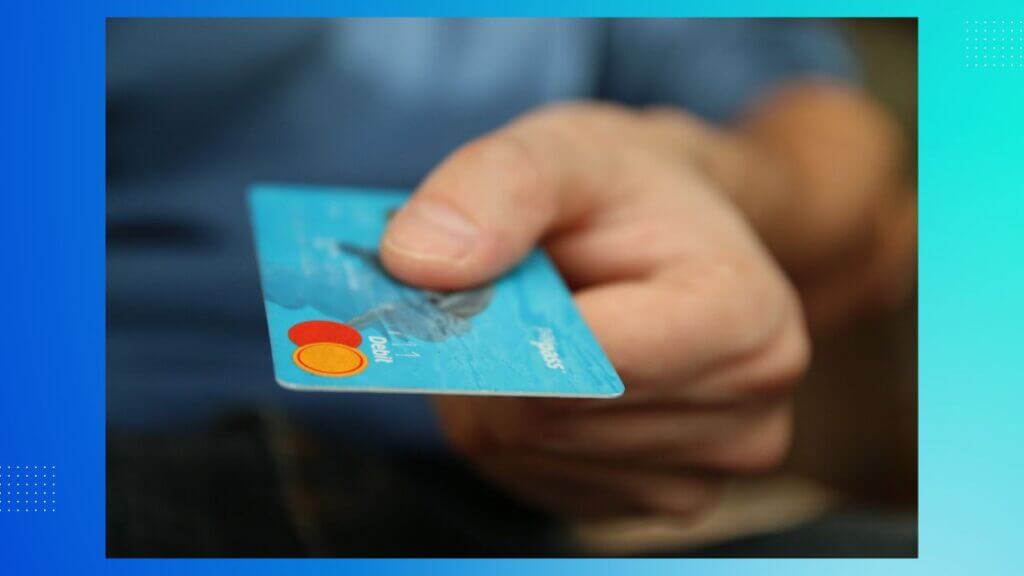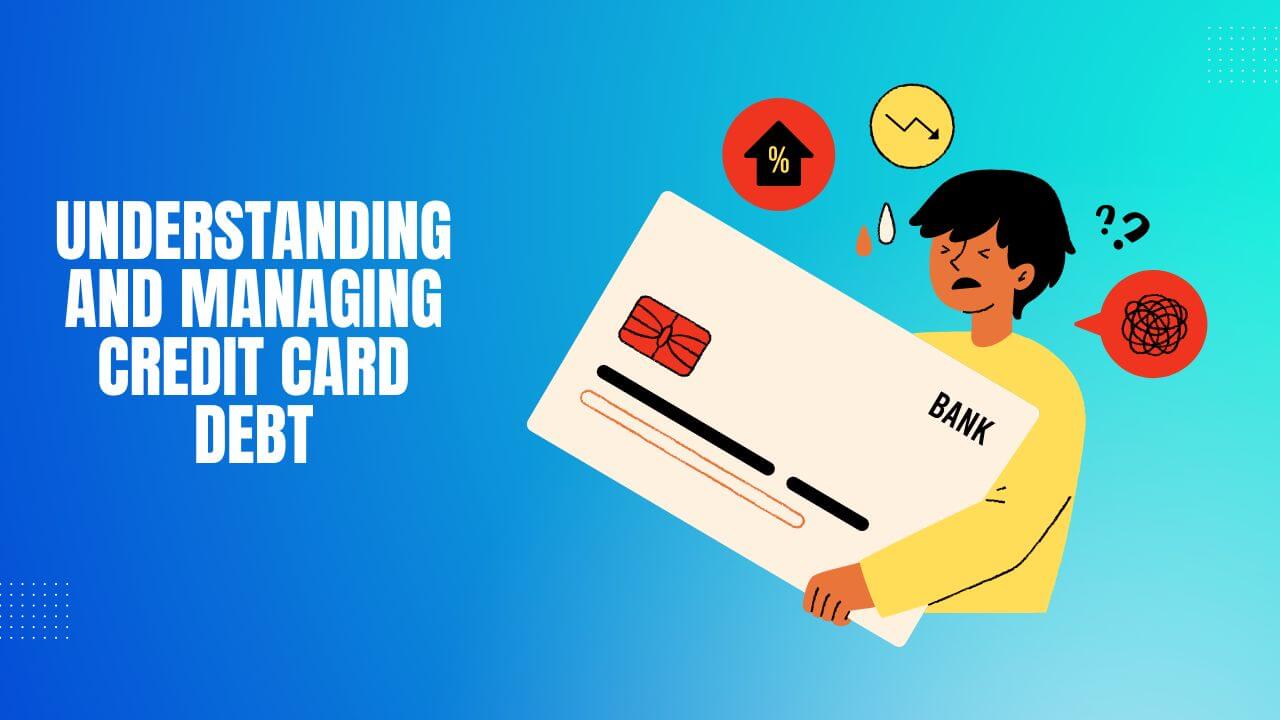Did you know that credit card debt is one of the top financial concerns for our generation?
According to a recent study, the average millennial carries a credit card balance of over $4,000.
That’s a significant amount of debt that can take years to pay off, especially when you factor in high-interest rates and fees.
But don’t worry, you’re not alone in this struggle.
Understanding and managing credit card debt is a critical skill that everyone should have, and in this article, we’re going to break it all down for you.
We’ll dive into the basics of credit card debt, including how it accumulates and why so many millennials find themselves in this position.
We’ll also explore the true cost of credit card debt, from the interest rates that can quickly add up to the penalties and fees that can make your debt even more challenging to overcome.
But it’s not all doom and gloom.
We’ll also share effective strategies for managing credit card debt, like creating a budget, negotiating with credit card companies, and seeking help from a credit counselor.
Finally, we’ll talk about healthy credit card habits that can help you avoid debt altogether, like using credit responsibly and building a strong credit score.
By the end of this post, you’ll be armed with the knowledge and tools you need to take control of your finances and achieve long-term financial stability.
So, let’s get started!
1. Understanding Credit Card Debt
1.1 Types of credit card debt
Credit card debt can take many forms, and it’s essential to understand the different types of debt you might be dealing with.
Here are some of the most common types of credit card debt:
- Revolving debt: This is the most common type of credit card debt, where you have a balance that carries over from month to month. Each month, you’ll have a minimum payment that you’re required to make, but you can also choose to pay more if you’re able.
- Installment debt: This type of debt is less common, but it’s still important to be aware of. With installment debt, you’ll have a set payment amount each month until the debt is paid off in full. This type of debt is typically associated with big-ticket purchases like furniture or appliances.
- Cash advances: When you use your credit card to withdraw cash, you’re taking out a cash advance. These usually come with higher interest rates and fees than other types of credit card debt, so it’s important to avoid them whenever possible.

1.2 How credit card debt accumulates
Credit card debt accumulates in several ways, and it’s crucial to understand how this happens so that you can take steps to avoid it.
Here are some of the most common ways that credit card debt accumulates:
- Interest: Every time you carry a balance on your credit card, you’ll be charged interest. The longer you carry the balance, the more interest you’ll accumulate, making it harder to pay off the debt.
- Late fees: If you miss a payment or make a payment late, you’ll likely be charged a late fee. These fees can add up quickly and make it even harder to pay off your debt.
- Balance transfers: When you transfer a balance from one credit card to another, you may be charged a fee for the transfer. This fee can add to your overall debt and make it more challenging to pay off.
1.3 Common Reasons for credit card debt among Millennials
While credit card debt can happen to anyone, there are some common reasons why we may struggle with it more than other generations.
Here are a few of the most common reasons:
- High living expenses: We often face higher living expenses than previous generations, making it harder to make ends meet and pay off debt.
- Student loan debt: With the rising cost of education, many of us are saddled with significant student loan debt, making it harder to manage other types of debt.
- Lack of financial literacy: Many of us were not taught financial literacy in school, making it harder to understand how credit works and how to manage debt effectively.
Understanding these common reasons can help you take steps to avoid credit card debt and manage it effectively if you do find yourself struggling.
2. The Cost of Credit Card Debt
2.1 Interest rates
Interest rates are a critical factor to consider when it comes to credit card debt.
The higher the interest rate, the more you’ll pay interest charges, making it harder to pay off your debt.
Here are some essential things to know about credit card interest rates:
- APR: APR stands for Annual Percentage Rate, and it’s the interest rate you’ll pay on your credit card balance over a year. It’s important to understand your APR and how it affects your overall debt.
- Variable vs. Fixed: Some credit cards have fixed interest rates, which means the rate stays the same over time. Other cards have variable interest rates, which means the rate can change based on factors like the economy or the card issuer’s policies.
- Introductory rates: Some credit cards offer introductory rates, which are low or 0% interest rates for a limited time. While these can be beneficial, it’s essential to understand when the introductory rate ends and what the new rate will be.

2.2 Late fees and penalty charges
Late fees and penalty charges can quickly add up and make it harder to pay off your credit card debt.
Here are some important things to know about these charges:
- Late fees: If you miss a payment or make a payment late, you’ll likely be charged a late fee. Late fees can range from $25 to $40 or more, and they can add up quickly if you miss multiple payments.
- Penalty APR: Some credit cards have a penalty APR, which is a higher interest rate that applies if you miss a payment or make a payment late. Penalty APRs can be as high as 29.99%, making it much harder to pay off your debt.
- Over-the-limit fees: If you exceed your credit limit, you may be charged an over-the-limit fee. These fees can add up quickly and make it even harder to pay off your debt.
2.3 The impact of credit card debt on credit score
Your credit score is a critical factor when it comes to credit card debt.
Here are some essential things to know about how credit card debt can impact your credit score:
- Credit utilization: Credit utilization is the amount of credit you’re using compared to the total amount of credit available to you. High credit card balances can increase your credit utilization, which can lower your credit score.
- Payment history: Your payment history is an essential factor in your credit score. Late payments or missed payments can significantly lower your credit score, making it harder to qualify for loans or credit in the future.
- Credit mix: Having a mix of different types of credit, like credit cards, auto loans, and mortgages, can be beneficial for your credit score. However, too much credit card debt can hurt your credit mix.
Understanding the cost of credit card debt is crucial for managing your finances effectively.
By understanding interest rates, late fees, penalty charges, and the impact of credit card debt on your credit score, you can take steps to manage your debt and achieve long-term financial stability.
3. Strategies for Managing Credit Card Debt
3.1 Creating a Budget and Sticking to It
One of the most effective ways to manage credit card debt is to create a budget and stick to it.
Here are some tips to help you create a budget:
- Track your spending: Start by tracking your spending for a month or two. This will help you see where your money is going and identify areas where you can cut back.
- Set goals: Determine your financial goals, such as paying off your credit card debt or saving for a down payment on a house.
- Create a plan: Once you know where your money is going and what your goals are, create a plan that outlines how much you’ll spend in each category and how much you’ll put toward paying off your debt.

3.2 Paying more than the minimum balance
Paying more than the minimum balance can help you pay off your credit card debt faster and save money on interest charges.
Here’s why:
- Interest charges: When you only pay the minimum balance, you’ll pay more interest charges over time, making it harder to pay off your debt.
- Paying down the principal: When you make larger payments, you’ll pay down the principal balance faster, which can help you pay off your debt faster.
- Credit score: Paying more than the minimum balance can also have a positive impact on your credit score, as it can help lower your credit utilization and improve your payment history.
3.3 Negotiating with credit card companies
Negotiating with your credit card company can be a way to reduce your debt and make it easier to pay off.
Here are some tips for negotiating with your credit card company:
- Call your credit card company: Start by calling your credit card company and explaining your situation. They may be willing to work with you to reduce your interest rate or waive late fees.
- Be prepared: Before you call, make sure you know your current interest rate, balance, and payment history. This information will help you make a strong case for why you need help.
- Consider a hardship program: Some credit card companies offer hardship programs that can lower your interest rate or reduce your payments for a set period.
3.4 Balance transfer options
A balance transfer can be a useful tool for managing credit card debt, as it allows you to transfer your balance to a new card with a lower interest rate.
Here’s what you need to know about balance transfers:
- Introductory rates: Balance transfer cards often come with introductory rates, which are low or 0% interest rates for a limited time.
- Fees: Balance transfer cards may also charge fees, which can be a percentage of the amount you transfer or a flat fee.
- Credit score: Applying for a new credit card can have a temporary negative impact on your credit score, so it’s important to consider this before applying.
3.5 Seeking help from a credit counselor
If you’re struggling to manage your credit card debt on your own, seeking help from a credit counselor can be a good option. Here’s what you need to know:
- Credit counseling agencies: Credit counseling agencies can help you create a budget, negotiate with your creditors, and develop a debt management plan.
- Fees: Some credit counseling agencies charge fees for their services, so be sure to ask about fees before signing up.
- Accreditation: Look for a credit counseling agency that’s accredited by the National Foundation for Credit Counseling (NFCC) or the Financial Counseling Association of America (FCAA).
By using these strategies for managing credit card debt, you can take control of your finances and achieve long-term financial stability.
4. Developing Healthy Credit Card Habits
Credit cards can be a valuable financial tool when used responsibly.
Here are some tips for developing healthy credit card habits:
4.1 Using Credit Cards Responsibly
- Set a Budget: Before you make any purchases, create a budget to determine how much you can afford to spend. Make sure to stick to it.
- Pay in Full: Pay off your balance in full each month to avoid interest charges. If you can’t pay the full balance, try to pay more than the minimum payment.
- Track Your Spending: Keep track of your credit card spending to avoid overspending and to monitor for any fraudulent charges.
- Use Credit Card Rewards Wisely: Many credit cards offer rewards programs, such as cashback or points. Use these rewards wisely by only redeeming them for items you need, and not just because they’re available.

4.2 Building a Strong Credit Score
- Pay Your Bills on Time: Late payments can negatively impact your credit score, so make sure to pay your credit card bills on time.
- Keep Your Credit Utilization Low: The amount of credit you use compared to your credit limit, known as your credit utilization, is an important factor in your credit score. Try to keep your credit utilization below 30%.
- Don’t Open Too Many Credit Cards: Having too many credit cards can be overwhelming and can also negatively impact your credit score. Only open new cards when necessary.
4.3 Avoiding Common Credit Card Mistakes
- Ignoring Your Credit Card Statements: Make sure to read your credit card statements each month to check for errors or fraudulent charges.
- Taking Cash Advances: Cash advances usually come with high fees and interest rates, so it’s best to avoid them if possible.
- Closing Old Credit Cards: Closing an old credit card can hurt your credit score by reducing your available credit and shortening your credit history. Instead of closing the card, consider keeping it open and using it occasionally.
Bottom Line…
In conclusion, credit card debt can be a serious financial burden, but by understanding the types of credit card debt, the cost of credit card debt, strategies for managing it, and developing healthy credit card habits, we can take control of their finances and avoid falling into the trap of overwhelming credit card debt.
According to recent studies, millennials carry an average credit card debt of $4,712, and more than half of millennials report feeling stressed about their finances.
However, by creating a budget, paying more than the minimum balance, negotiating with credit card companies, and seeking help from a credit counselor, we can take the necessary steps to manage our credit card debt and improve our financial well-being.
Developing healthy credit card habits, such as using credit cards responsibly, building a strong credit score, and avoiding common credit card mistakes, can also go a long way in helping us stay on track and avoid accumulating debt in the first place.
Remember, managing credit card debt is a journey, and it’s important to be patient and persistent in your efforts.
By taking small steps and staying focused on your goals, you can take control of your finances and build a bright financial future for yourself.

1 thought on “Understanding And Managing Credit Card Debt”